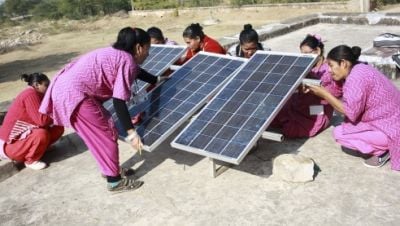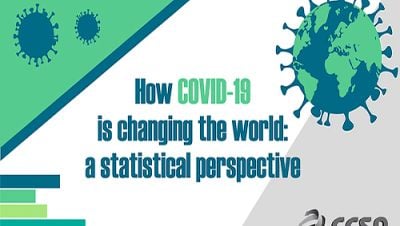In today’s world defending the dignity of work is a constant uphill struggle. Prevailing economic thinking sees work as a cost of production, which in a global economy has to be as low as possible in order to be competitive. It sees workers as consumers who because of their relative low wages need to be given easy access to credit to stimulate consumption and wind up with incredible debts. Nowhere in sight is the societal significance of work as a foundation of personal dignity, as a source of stability and development of families or as a contribution to communities at peace. This is the meaning of ‘decent work’. It is an effort at reminding ourselves that we are talking about policies that deal with the life of human beings not just bottom line issues. It is the reason why the International Labour Organization constitution tells us “Labour is not a commodity.i” And we know that the quality of work defines in so many ways the quality of a society. And that’s what our policies should be about: keeping people moving into progressively better jobs with living wages, respect for worker rights, nondiscrimination and gender equality, facilitating workers organization and collective bargaining, universal social protection, adequate pensions and access to health care.
All societies face decent work challenges, particularly in the midst of the global crisis that still haunts us. Why is this so difficult? There are many converging historical and policy explanations, but there is a solid underlying fact: in the values of today’s world, capital is more important than labour. The signs have been all over the place—from the unacceptable growth of inequality to the shrinking share of wages in GDP. We must all reflect on the implications for social peace and political stability, including those benefitting from their present advantage.
But things are changing. Many emerging and developing countries have shown great policy autonomy in defining their crisis responses, guided by a keen eye on employment and social protection, as the 2014 Human Development Report advocates. Policies leading to the crisis overvalued the capacity of markets to self-regulate; undervalued the role of the State, public policy and regulations and devalued respect for the environment, the dignity of work and the social services and welfare functions in society. They led into a pattern of unsustainable, inefficient and unfair growth. We have slowly begun to close this policy cycle, but we don’t have a ready-made alternative prepared to take its place.
This is an extraordinary political opportunity and intellectual challenge for the United Nations System. Coming together around a creative post-2015 global vision with clear Sustainable Development Goals (SDGs) can be a first step into a new policy cycle looking at what a post-crisis world should look like. And beyond the United Nations, we need to listen. There is great disquiet and insecurity in too many societies. . And that’s why the insistence of the 2014 Human Development Report on reclaiming the role of full employment, universal social protection and the road to decent work is so important. It builds on the existing consensus of the largest meeting of Heads of State and Government in the history of the United Nations. In their 2005 Summit they stated that “We strongly support fair globalization and resolve to make the goals of full and productive employment and decent work for all, including for women and young people, a central objective of our relevant national and international policies as well as our national development strategies.ii” So, at least on paper, the commitment is there in no uncertain terms.
Let me finish with one example of the changes necessary for which I believe there is widespread consensus. Strong real economy investments, large and small, with their important job-creating capacity must displace financial operations from the driver’s seat of the global economy. The expansion of short-term profits in financial markets, with little employment to show for it, has channeled away resources from the longer term horizon of sustainable real economy enterprises. The world is awash in liquidity that needs to become productive investments through a regulatory framework ensuring that financial institutions fulfil their original role of channeling savings into the real economy. Also, expanding wage participation in GDP within reasonable inflation rates will increase real demand and serve as a source of sustainable development growth. Moving from committed minimum wage policies to a much fairer distribution of productivity gains and profits should be a point of departure. Dreams or potential reality? We shall see, but no doubt this is what politics and social struggles will be all about in the years to come.
This blog entry is slightly shortened version of a special contribution made to the 2014 Human Development Report “Sustaining Human Progress: Reducing Vulnerabilities and Building Resilience”.
Dr. Juan Somavia is the former Director General of the International Labour Oganization.
Notes:
i Constitution of the International Labour Organisation and Selected Texts. Geneva: International Labour Office. www.ilo.org/public/english/bureau/leg/download/constitution.pdf. Accessed 25 March 2014.
ii UN World Summit Outcome (A/60/L.I) 15 September, 2005. New York. www.un.org/womenwatch/ods/A-RES-60-1-E.pdf. Accessed 25 March 2014.
Photo credit: ILO/Jacek Cislo
The HDialogue blog is a platform for debate and discussion. Posts reflect the views of respective authors in their individual capacities and not the views of UNDP/HDRO.


